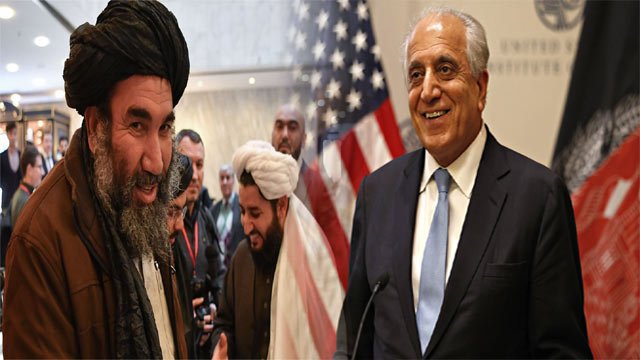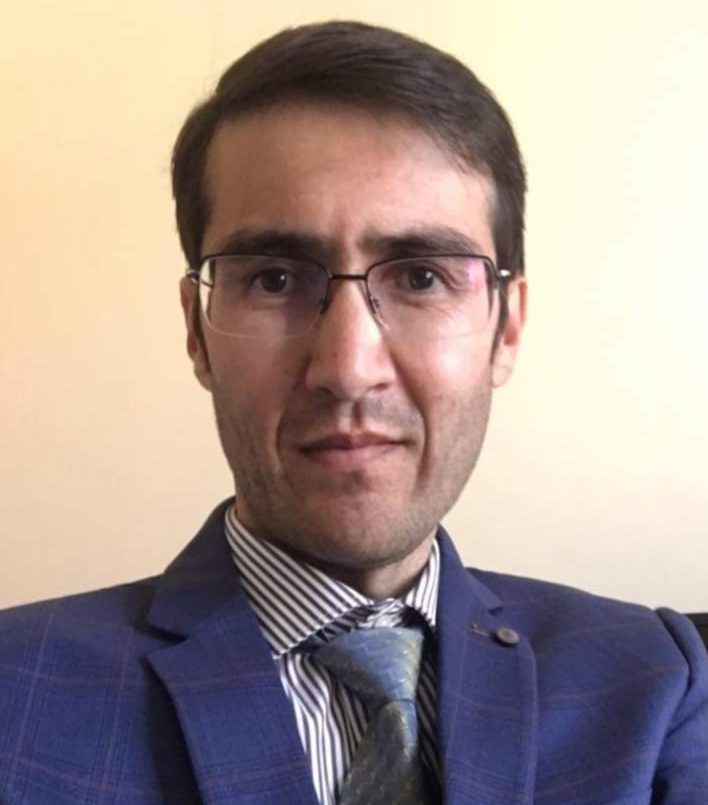Post 9/11 US-led state-building efforts in Afghanistan have not been able to strengthen political structure and resolve social issues, or they have never intended to do so. There is a possibility that these efforts were never directed to such a cause; rather, they were to give only an impression of state-building, while the US intervention in the country was to further the geo-political interests of the US in the region. Whatever the intention, these efforts have only strived to form a highly authoritative central government, ignoring the peripheries, and local units. Therefore, we can find an authoritative Presidential Palace (Arg), with unauthoritative provincial and local institutions. The incapacity to strengthen government at the provincial and local levels has created a vacuum of authority, which is then filled through powerful individuals, mostly warlords. These warlords, through political maneuvering, have mostly pursued their own interests, or the interests of the external actors who sponsor them, mostly in disguise of service to the people through ethnic politics. They, in the process, have thinned the already fading legitimacy of the state and its institutions. Thus in words of Romain Malejacq, external intervention in Afghanistan has failed to foster state consolidation, instead empowering and creating ties with the ones it aims to weaken.
The US state building efforts in Afghanistan have, therefore, ‘made its own monsters, and now it fears what they have to show.’ The warlords in Afghanistan have not only outmaneuvered their sponsors, but have also played cunningly on the domestic chessboard. They have not been so naive to play only the role of rebellions; in several instances, when they have realized that the government is stronger through external support, they have changed sides, without even thinking twice. For example, it was the warlords who fought the war for the US immediately after their intervention, and today it is again the warlords who occupy some of the important ranks in the government.
As far as the relation of the warlords with their people is concerned, the interplay is interesting. The warlords, in their political slogans, chant the interests of their ethnic groups; and in their promises, pledge to safeguard their interests, but what have come out of these slogans and promises are evident to everyone. Though, a certain ethnic group, because of their numerical enormity or undue favors, may be doing better than the others; all the ethnic groups as the people living in a state face instability, insecurity and poverty. What have changed as a result of these slogans and promises is the fates of the warlords themselves; meanwhile, the people have mostly remained divided and deprived.
Definitely, there are divisions among different ethnic groups in Afghanistan; however, the hierarchal divisions within each ethnic group remain universal. The standard of living of the warlords, and the ethnic groups whom they claim to serve differ to a great extent. Thus, two types of divisions can be observed – first among the ethnic groups and second within each ethnic group itself. Now, the ethnic groups that are discriminated, their warlords may have less privileges or power than the discriminating ones, but they are much blessed in comparison to the privileges at the disposal of the very people they claim to represent.
A case study of Hazaras in Afghanistan can be considered to explain the phenomenon aptly. Just like all other ethnic groups in the country, Hazara warlords, through their military, financial and political power (nowadays mostly political), enjoy dominance and authority. As compared to their Pashtun and Tajik counterparts, however, the Hazara warlords are less privileged, and because of ethnic bias, they have been considered suitable for the third-tier role in the government, like 2nd deputy to the President, or to the Chief Executive Officer. Dominant among these warlord turned politicians are Haji Mohammad Mohaqqiq and Abdul Karim Khalili. Khalili served as the 2nd deputy to the President Hamid Karzai for two tenures, before being appointed as the Chairman of High Peace Council and Mohaqqiq served as Member of Wolesi Jirga for two terms before being appointed as the 2nd deputy to Abdullah Abdullah in National Unity Government (NUG). However, they could never demand to acquire the role of the president of the country, as Pashtuns, because of their numerical dominance, are considered the rightful rulers of Afghanistan.
In the absence of state reach beyond the capital Kabul, both Mohaqqiq and Khalili have established their power connections in the areas that they represent, and they have kept their bargaining capacities with the center intact. Both have also been responsible in bringing divisions within Hazb-e-Wahdat that used to be a major political party representing Hazaras. In addition, they have made sure that their respective version of the party remains non-democratic so that they can strengthen their authoritarian positions. Though they provide certain favors to the people so that they remain connected and relevant, their real objectives have mostly been their own interests. Therefore, we can find them changing alliances, favors and loyalties.
Recently, Mohaqqiq joined Ghani administration as an advisor on security; interestingly, he has been Ghani’s staunch opponent. He, on many occasions, had accused Ghani and his administration for discrimination and violence against Hazaras, and always stood with Abdullah Abdullah against Ghani’s team. However, those accusations were forgotten when he sided with Ghani. Moreover, when he was a member of Wolesi Jirga, he also sided with Abdur Rasul Sayyaf ‘to secure his support for the post of deputy speaker of the parliament, in exchange for his support for Sayyaf’s candidacy to the post of the speaker of the parliament.’ On the other hand, Khalili has mostly claimed to be true representative of Hazaras, but he has been an important part of the Karzai’s tenures that institutionalized discrimination against Hazaras within the Kabul administration and bureaucracy. Khalili’s support for Sarwar Danish, the 2nd deputy to Ashraf Ghani during both his tenures, has also diminished, mostly because of clash of interests.
As far as the ordinary Hazara people, whom these leaders claim to represent, are concerned, their most worrying issue has been security. Unfortunately, the state has not been able to ensure that, and it has been one of the main reasons of the rise of these warlords. As Giustozzi explains, “Afghan warlordism is first and foremost explained by the strong demand for security by the population, especially in the villages.” So, both Mohaqqiq and Khalili have addressed this issue every now and then, but never attempted to solve it completely as it would endanger their own importance in the situation. For example, two main security concerns for Hazaras have been the Kuchi attacks on Hazara lands in central Afghanistan every year, and the targeted killings by the religious extremist groups, like Taliban militants and recently Daesh. Hundreds of Hazaras have been killed so far, but both Khalili and Mohaqqiq have not been able to at least reduce the intensity. They could play a key role during Karzai’s 2nd tenure in resolving the issue of Hazaras with Kuchis, but only a temporary solution was sought, and the opportunity was wasted. Meanwhile, both the leaders do not seem to have any strategic solution to the rising wave of Hazara killings by Daesh. To make matters worse, Mohaqqiq in a 2017 speech in Iran accepted the role of Hazara fighters recruited by Iran in Fatemiyoun Brigade against ISIS in Syria. Since 2017, Daesh has been involved in most lethal attacks against innocent Hazaras in mosques, processions, wrestling club, marriage hall, educational center and even hospital in capital Kabul. Most of these incidents have taken place during President Ghani’s tenures; and he has even been accused of involvement or indifference to curb the situation by both Mohaqqiq and Khalili, but recent move by Mohaqqiq to join Ghani’s team leaves little to say about their intention to ensure the security of ordinary Hazara people.
To sum up, we can say that US-led state-building in Afghanistan has not strengthened political and democratic institutions; rather it has given opportunity for the warlords to survive and even thrive. This has influenced the legitimacy of the state as the warlords have risen above it. Such a situation has also blocked the way for the young and educated people to lead the political landscape in the country. Therefore, if the US and other stakeholders in Afghanistan are really interested in carrying out effective state-building measures, they have to weaken the hold of the warlords, and strengthen the democratic and participatory institutions at central, provincial and local levels.

